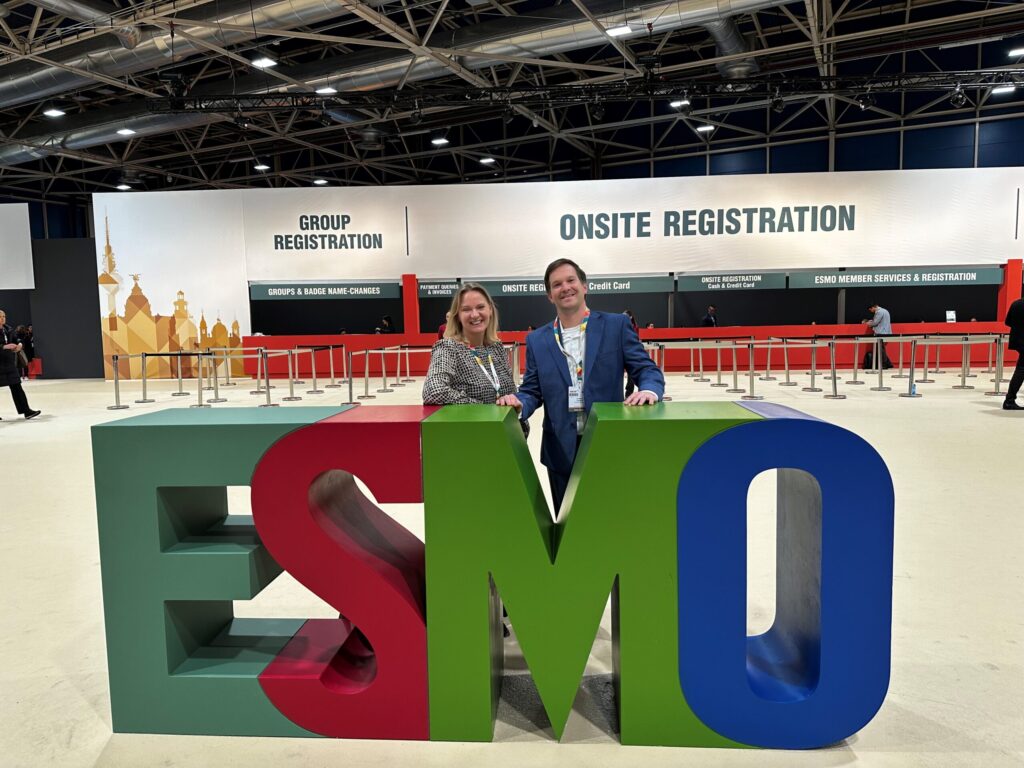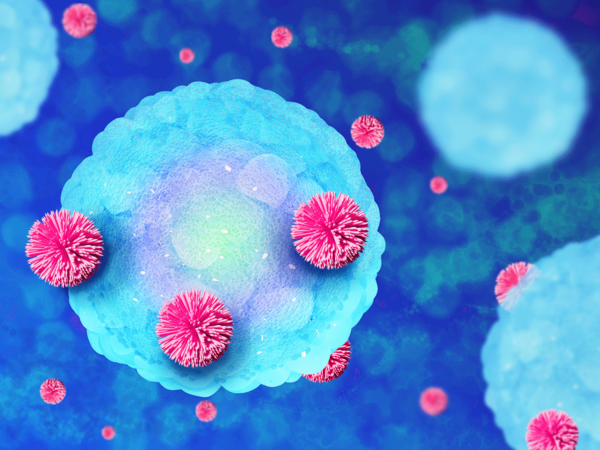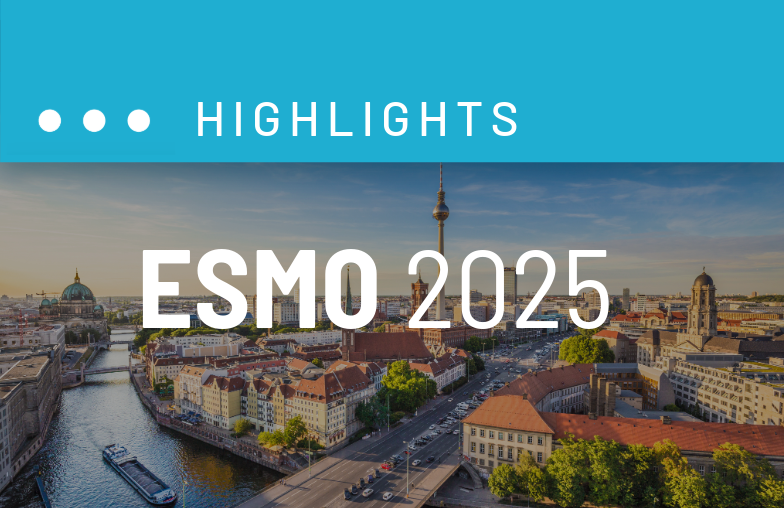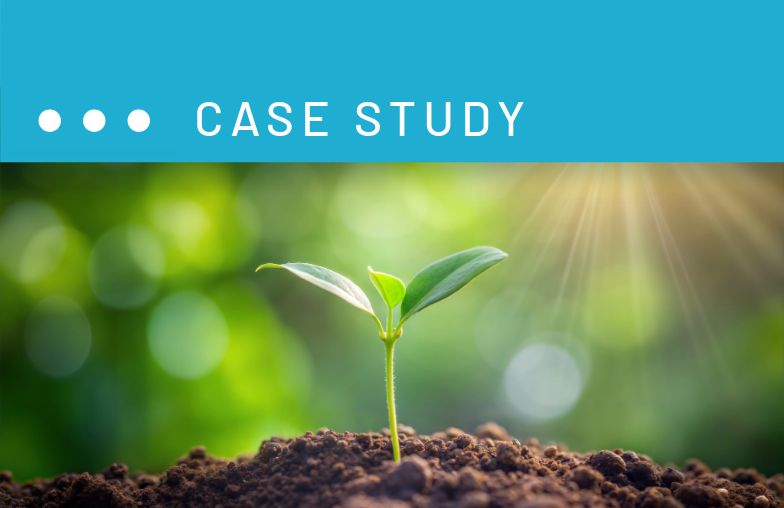Insights from the annual oncology conference
By Andrew Zupnick, PhD, Vice President of Oncology Drug Development
Cancer researchers from around the world converged on Madrid, Spain, in mid-October for the annual European Society of Medical Oncology (ESMO) conference. Excitement runs high for this event and the release of high-profile clinical trial results, and this year did not disappoint. Having been to many ESMO conferences, this one felt particularly packed. The lovely city of Madrid is a perfect setting to host more than 33,000 participants from over 140 countries1 (despite an absolute deluge of rain the day prior to the conference, which dampened some tourist activities).
With more than 2,100 poster presentations, there were many opportunities for education, training, and new data. It is always difficult to parse through the biggest impact presentations, but this year certainly had a strong theme around the recent resurgence of a decades-old technology: antibody drug conjugates (ADCs).
Quite simply the combination of traditional cytotoxic chemotherapy, an antibody to direct it to the cancer, and a linker to bridge the two, ADCs first entered the market in 2000 with the U.S. Food and Drug Administration’s approval of gemtuzumab ozogamicin (Mylotarg®) for relapsed or refractory CD33+ acute myeloid leukemia. What has brought ADCs back into the limelight are improvements in linker technologies to better balance holding onto the payload to reduce systemic toxicities, which led to Pfizer volutarily withdrawing it from the market in 2010, while being sufficiently “loose” to enable the killing of nearby cancer cells (the so-called “bystander effect”).
Just before ESMO kicked off, ADCs were in the news with a major $5.5B partnership deal from Merck2 (and potentially up to $22B) to jointly develop three of Daiichi Sankyo’s ADC cancer candidates.
At ESMO 2023, the brightest star was data from an 886 patient trial (EV-302)3 in first line untreated, locally advanced or unresectable bladder cancer. In this trial, enfortumab vedotin (Padcev®), a Nectin-4-targeted ADC from Seagen and Astellas Pharma was combined with pembrolizumab versus traditional chemotherapy. The data was striking, nearly doubling progression-free survival (PFS) from 6.3 months to 12.5, and nearly doubling overall survival (OS) from 16.1 months to 31.5. Though there were enhanced safety risks with the combination, the presentation received a rare standing ovation, and the results were lauded as “practice changing” for first-line bladder cancer patients.
Other ADC posters and presentations were prevalent, with data presented in a range of targets and indications such as TROP2 in lung and breast cancers, CDH6 in ovarian cancer, and a new entry with first-in-human data for a transmembrane glycoprotein B7-H4 ADC.


Not to be outdone, some other drug modalities also excelled at ESMO:
- Intravesicle chemo delivery: Janssen Pharmaceutical Companies of Johnson & Johnson TAR-200 system that delivers sustained low doses of gemcitabine into the bladder showed a nearly 80% complete response4 (CR) rate in Bacillus Calmette-Guerin (BCG)-unresponsive, high-risk, non-muscle-invasion bladder cancer (NMIBC)
- Radiopharmaceuticals: The PSMAfore trial from Novartis met its primary endpoint, showing 59% reduction in the risk of radiographic progression with their Lu-PSMA-6175 therapy in taxme-naive metastatic castration-resistant prostate cancer (mCRPC)
- Immunotherapy: Checkpoint inhibitors continue to show a benefit in expanded indications are earlier lines of therapy, and the KEYNOTE-671 trial demonstrated pembrolizumab as the “first anti-PD-1 therapy to demonstrate statistically significant improvement in OS as a neoadjuvant and adjuvant treatment versus pre-operative chemotherapy for NSCLC6“.
In all, ESMO 2023 was a busy event packed with people and with exciting clinical trial results. The resurgence of ADCs represents an advancement with a tried-and-true mechanism, and it was nice to see some less traditional treatment modalities sharing the limelight.
Mark your calendars now for 13 to 17 September 2024 for ESMO 2024 in Barcelona, Spain. I continue to be amazed by the progress and hope for our industry. Contact Catalyst Oncology to discuss how we can help support your clinical trials.
Citations
1 https://www.esmo.org/newsroom/esmo-society-updates/esmo-congress-2023-sets-strong-impulses-for-a-better-future-in-oncology
2https://www.reuters.com/business/healthcare-pharmaceuticals/daiichi-sankyo-merck-team-up-22-bln-collaboration-sankyos-antibody-drug-2023-10-19/”>$5.5B partnership deal from Merck
3https://investor.seagen.com/press-releases/news-details/2023/Groundbreaking-EV-302-Trial-Significantly-Extends-Overall-Survival-and-Progression-Free-Survival-in-Patients-Treated-with-PADCEV-enfortumab-vedotin-ejfv-and-KEYTRUDA-pembrolizumab-in-First-Line-Advanced-Bladder-Cancer/default.aspx
4https://www.jnj.com/tar-200-intravesical-delivery-system-results-show-77-percent-complete-response-rate-in-patients-with-bacillus-calmette-guerin-unresponsive-high-risk-non-muscle-invasive-bladder-cancer
5https://dailyreporter.esmo.org/esmo-congress-2023/genitourinary-cancers/177lu-psma-617-improves-rpfs-in-taxane-naive-metastatic-castration-resistant-prostate-cancer
6https://pipelinereview.com/index.php/2023101184402/Antibodies/Merck-Announces-Pivotal-KEYNOTE-671-Trial-Meets-Dual-Primary-Endpoint-of-Overall-Survival-OS-in-Resectable-Stage-II-IIIA-or-IIIB-Non-Small-Cell-Lung-Cancer-NSCLC.html




